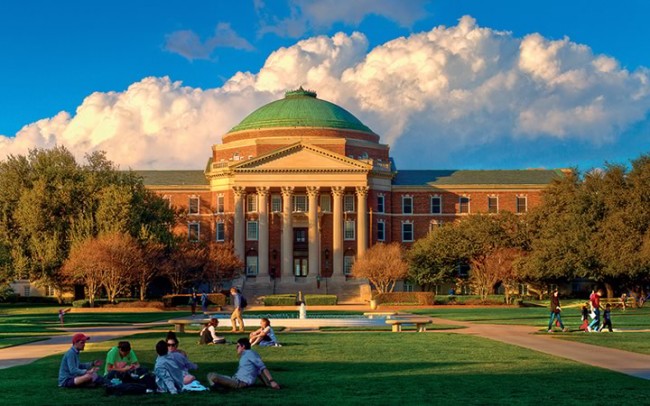By Kamilah Todd
Although I applied to colleges near both costs and went on numerous college visits, I compared every school to SMU. I knew if SMU would have me, I would be proud to be the eighth member of my family to be a Mustang. As most of my high school friends headed to large universities, my adjustment seemed easier than theirs.
Still clinging to my high school friends, we texted and talked often, comparing notes about our respective college experiences. While I chose a small private university, many of my friends went to large, public universities like the University of Texas and A&M. Over and over again, I realized how different our experiences were, and in my mind, how much better mine was.
Although most colleges have orientation trips for freshman (Mustang Corral), the difference with SMU’s is that we actually see those people again on campus. It is much easier to make friends when you are constantly running into someone on the boulevard. In classes, we really get to know our fellow students, because there are usually less than a dozen of them. A campus filled with 50,000 students would be overwhelming. Sometimes more is not better.
The benefits of smaller classes are innumerable. When you are a name and a face, not just an ID number, it makes you accountable. Your professors, by the end of the semester, know you very well. I’m often reluctant to speak, but professors seek out my opinion and make me join the discussion.
Over the last four years, this has given me an increased ability to interact and think out loud. We have classroom discussions where everyone participates. That would be impossible with hundreds of students. I have friends who can watch their classes on the Internet, which is a norm at most public universities. Sometimes this is optional and sometimes their class is actually on the Internet. That just seems like going to school on Mars to me, and, although my lazy side likes the idea, I can’t imagine learning without human interaction.
I believe the academic bar is higher at private institutions. For starters, we write more papers. I have written 110 papers so far and I still have a few more to go before I graduate. Only a professor with small classes could grade the volume of papers we are expected to turn out during our stay at SMU. Tests always have an essay component. You could call us the anti-multiple-choice university.
We have better faculty. You can Google our professors and they’re important. Often they are working experts in their fields, which keeps them relevant and creates a tremendous source for students about to enter the job market. Our professors are focused on the achievement of students, not their next research project. Most will go through SMU without ever seeing a teaching assistant.
SMU is often criticized for its lack of diversity, and we do need to improve in that area, yet, because we are so small, we are naturally more integrated. When you have a large class body, there are so many students that they seem to naturally segregate. At SMU we are so small that just isn’t possible.
Because we are so small, we can pretty much walk into any office we like. If we have an issue, we just go to the department and talk to someone. There is not a separation of faculty and administration from students that you find at larger schools.
SMU can seem overly concerned about our welfare, but I believe it’s because every student matters to them. Like strict parents, our safety and wellbeing is their main concern.
My brother’s suitemate died of alcohol poisoning on campus his freshman year at SMU, so I always consider this when we are bombarded by substance abuse warnings. They don’t want this to happen ever again. They warn us about sexual assault and reporting such acts, but most people fail to report. There is only so much a university can do with young adults, but SMU goes above and beyond what larger schools can do to keep us safe.
When I was getting a C at midterm once, SMU sent a note to my parents. My mother, with the SMU Parent Leadership Council, helped call all freshman parents to see how their children were adjusting, fielding concerns and questions. Can you imagine the University of Texas sending these notes or making these calls?
We pay a pretty penny for our liberal arts educational pedigree, but that should not dissuade students from seeking a private education. With more than half the student body receiving financial aid, it often doesn’t cost more.
I am grateful to have had the privilege to go to a university with such an exceptional learning environment.









